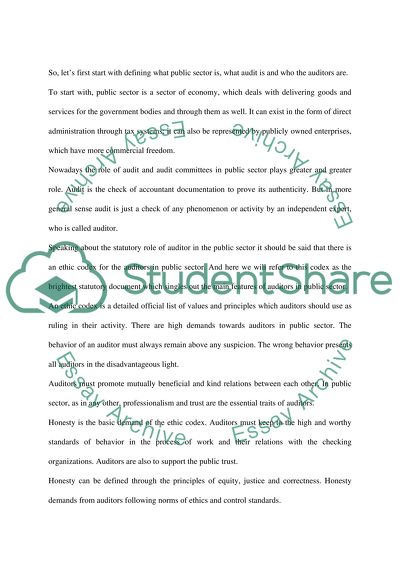Cite this document
(Role of Auditor in Public Sector Research Paper, n.d.)
Role of Auditor in Public Sector Research Paper. Retrieved from https://studentshare.org/finance-accounting/1517403-role-of-auditor-in-public-sector
Role of Auditor in Public Sector Research Paper. Retrieved from https://studentshare.org/finance-accounting/1517403-role-of-auditor-in-public-sector
(Role of Auditor in Public Sector Research Paper)
Role of Auditor in Public Sector Research Paper. https://studentshare.org/finance-accounting/1517403-role-of-auditor-in-public-sector.
Role of Auditor in Public Sector Research Paper. https://studentshare.org/finance-accounting/1517403-role-of-auditor-in-public-sector.
“Role of Auditor in Public Sector Research Paper”, n.d. https://studentshare.org/finance-accounting/1517403-role-of-auditor-in-public-sector.


